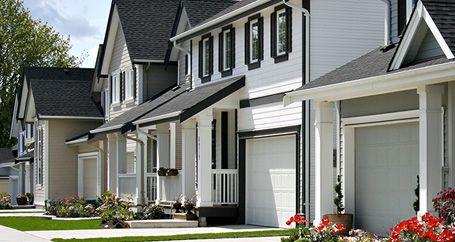
Answer Home insurance costs vary by carrier, but there are some common factors that insurers are likely to consider when setting rates, including the type, size and location of your house, the amount of insurance coverage you request and the deductibles you choose.
Risk is an important factor when insurance companies are setting rates. Regional risks like fire and weather, along with characteristics of your house and where it is, are likely to be part of that calculation. Insurers may also consider your personal finances by looking at your credit history, although some states prohibit the use of your credit rating or have rules about how that information can be used and whether its use needs to be disclosed.
Among the factors that could affect your home insurance rates:
Location. Insurers may take into account the potential for severe weather in the area, the rate of burglaries and vandalism and even how close you are to a fire hydrant or a fire station.
Type of construction. What your house is built of may impact insurance rates. For example, solid masonry construction is considered less vulnerable to fire and wind damage than an all-wood home.
Age and condition. Older homes may be considered more of a risk for expensive problems and less able to stand up to severe weather. The age and condition of your roof is also a key factor. Some insurers offer discounts for new roofs.
Types and amount of coverage. As a homeowner, you have some flexibility in choosing how much homeowners coverage you want. Standard policies typically include the cost to rebuild your home if it is damaged or destroyed by events covered by your policy. Also included is coverage for your personal belongings and for your liability in case someone is injured and you are held legally responsible. You can often add coverage for specific risks, like earthquakes or sewer backups, and for valuable possessions. More coverage generally comes at a higher cost.
Deductibles. Homeowners policies come with deductibles, which is the amount you pay toward a loss before the insurer pays a claim. Typically, your house’s structure and your personal property coverage carry separate deductibles, which you select. Choosing a higher deductible amount can lower the cost of premiums.
Insurers may also consider other variables that can impact the risk of insuring your home, including your past claims history, features like pools and trampolines, medical costs in your area, and even the type of pet you own. Government regulations in your area may also have an effect.
Many factors affecting the cost of your policy are out of your control, but keeping up on home maintenance, improving security and fire protection and regularly reviewing your coverage and any discounts your insurer offers may help keep costs down.
Farmers Home
Insurance
Find out why home
insurance from
Farmers is a smart
choice.
The information contained in this page is provided for general informational purposes only. The information is provided by Farmers® and while we endeavor to keep the information up to date and correct, we make no representations or warranties of any kind, express or implied, about the completeness, accuracy, reliability, suitability or availability with respect to this article or the information, products, services or related graphics, if any, contained in this article for any purpose. The information is not meant as professional or expert advice, and any reliance you place on such information is therefore strictly at your own risk.
Related articles

Does Home Insurance Cover Plumbing?

Why Did My Homeowners Insurance Go Up?

